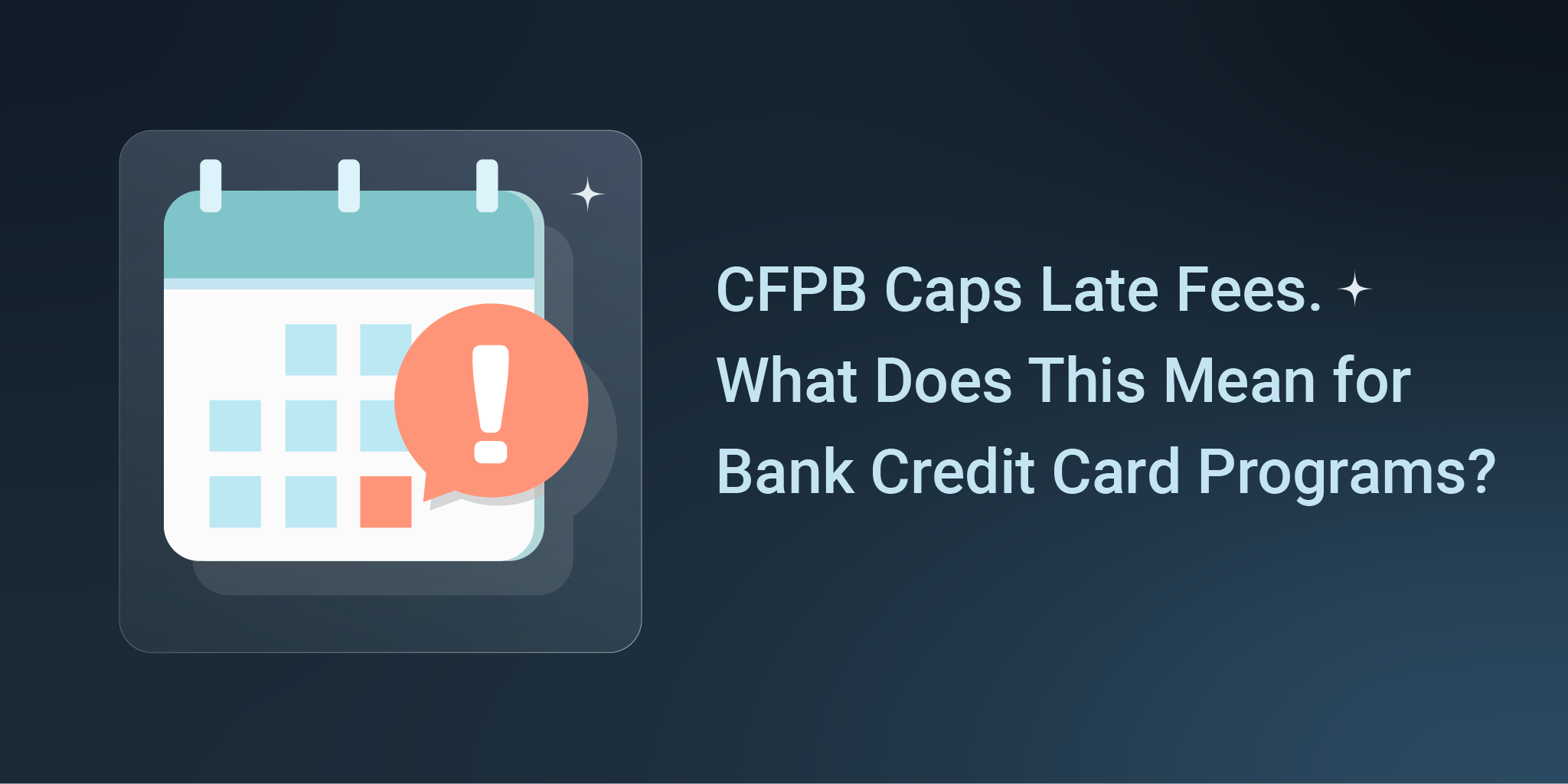CFPB Caps Late Fees. What Does This Mean for Bank Credit Card Programs?
At the beginning of March, the Consumer Financial Protection Bureau (CFPB) issued a new rule that limits the fees that credit card issuers can assess for late payments. According to the CFPB, late fees grew to $14 billion in 2022, accounting for 10.7% of the $130 billion consumers were charged in credit card interest and fees for the year. While the new rules will reduce that number, not all banks will be affected equally.
What are the new late fee caps?
While previous regulations technically limited late fees to the amount needed to recover costs associated with the late payment, an immunity provision in those rules allowed credit card issuers to charge up to $25 for the first late payment and up to $35 for each subsequent late payment, with both amounts adjusted annually for inflation. Since those rules were implemented in 2010, those amounts increased to $30 and $41, respectively.
The new rules lower that limit to $8 and the automatic inflation adjustment provision has been removed. Instead, the CFPB will adjust the threshold as necessary. Larger fees will still be allowed, but only if the card issuer can prove that the higher fee is required to cover collection costs.
Given the significant reduction in fee limits, credit card issuers that generate significant revenue from late fees will see that line item drop substantially.
Who do the new late fee rules apply to?
The good news for community banks and credit unions is that these rules only apply to credit card issuers with over one million open accounts. The CFPB chose to focus on larger issuers because it found that these companies account for more than 95% of total outstanding credit card balances and that smaller issuers already charge lower rates and fees.
Unlike the larger issuers, smaller issuers will be allowed to charge the pre-existing higher fee amounts, with the final rules setting the limit at $32 for the first late fee and $43 for each subsequent fee.
Despite not being subject to the more stringent caps at this time, competitive pressures will likely induce smaller card issuers to lower their fees as well. There is also the possibility that the CFPB will expand the late fee caps to smaller issuers later.
What should banks do next?
Even banks not subject to the new late fee caps should use this as an opportunity to reevaluate their credit card programs. While they can be a source of short-term revenue, accounts that incur late fees tend to be credit risks and an eventual default could cost far more than the incremental revenue their fees generated.
Instead, banks should look for ways to modernize and upgrade their credit card programs to make them a low-risk source of reliable revenue that adds value to their customers. If a credit program depends on fee revenue to be profitable, the credit quality of its accounts is likely riskier than it needs to be and the program could quickly become a source of losses if economic challenges arise.
In addition to improving the credit quality of their consumer card programs, which could include changing their underwriting processes or upgrading technology to appeal to higher-quality consumers, banks could grow and diversify their credit card revenue streams by adding a business credit program or expanding their existing one.
Launch or upgrade your business credit card program with Torpago
If your bank has been considering launching a business credit program or has an existing program that’s underperforming, we can help you get launched or upgraded quickly. Our Powered By solution suite provides banks with the technology and resources they need to get a modern business credit card program to the market quickly and affordably.
Featuring easy-to-issue physical and virtual cards, a modern spend management platform, built-in integrations with all major business accounting tools, a robust admin tool that provides access to your valuable transaction data, and support from our team of experts, Powered By is a turnkey solution designed specifically for the needs of banks and credit unions that want to build a robust business credit business. Request a demo today to learn more!


